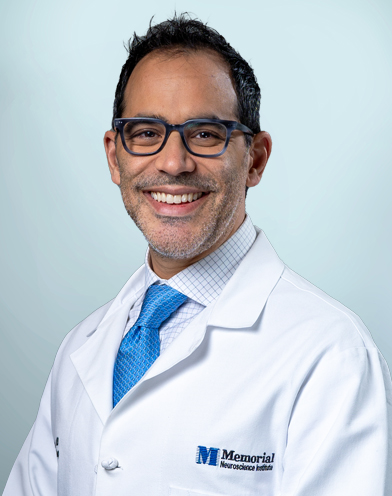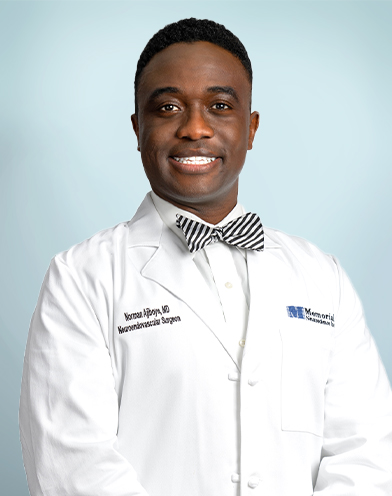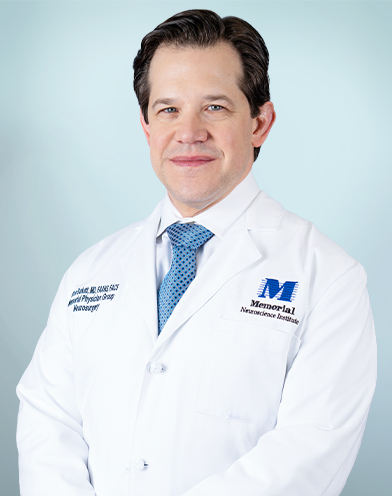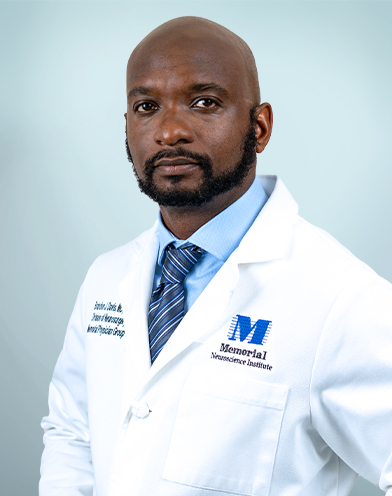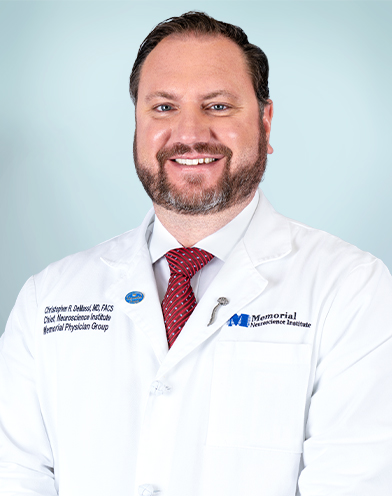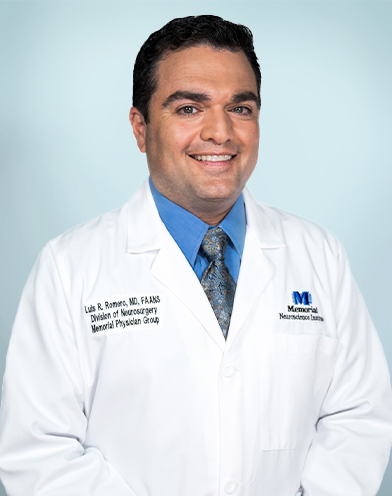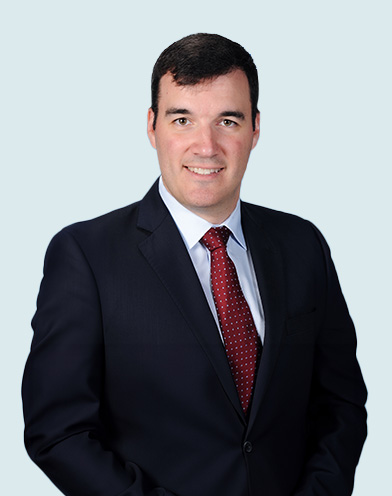
Locations
Memorial Division of Neurosurgery
1150 N 35th Avenue
Suite 300
Hollywood, FL 33021
954-989-0454
About Me
I am a neurosurgeon at Memorial Neuroscience Institute, where I care for patients with disorders of the brain and spine with a focus on complex spinal disorders. I specialize in complex neurosurgical spine surgery to treat degenerative spine disease, traumatic injuries of the spine, tumors and spinal deformity (scoliosis). I also perform surgeries to treat cranial tumors, subdural hematoma, Chiari malformation and traumatic brain injury.
As a fellowship-trained spine surgeon with a specialization in spinal deformity, I focus on understanding the global picture of the patient's spinal alignment and condition while determining the best treatment path for the patient.
I was drawn to neurological surgery because of the eloquence of surgical techniques and the ability to rapidly treat life-altering conditions. Today, there is tremendous improvement possible for patients following surgery.
My goal when working with patients is to identify the specific problem — whether it’s pain, weakness, spinal deformity or another condition that brought them to my care — so that I can tailor a treatment to focus on alleviating their symptoms and returning them to their normal lives. I strongly believe that wherever appropriate, nonsurgical and conservative treatment options should be attempted prior to surgery. Many patients will likely recover without needing surgery.
I am also involved in research to continue to expand the options and outcomes for patients. I trained at the University at Buffalo where we were often tasked with implementing new technology and techniques for neurosurgical care to push the boundary of care. Research across the breadth of neurosurgery continues to be a critical part of my work, especially exploring spine-related and TBI-related treatments. We hope to continue to optimize surgical techniques to improve patient outcomes, reduce complications and promote healing.
As a fellowship-trained spine surgeon with a specialization in spinal deformity, I focus on understanding the global picture of the patient's spinal alignment and condition while determining the best treatment path for the patient.
I was drawn to neurological surgery because of the eloquence of surgical techniques and the ability to rapidly treat life-altering conditions. Today, there is tremendous improvement possible for patients following surgery.
My goal when working with patients is to identify the specific problem — whether it’s pain, weakness, spinal deformity or another condition that brought them to my care — so that I can tailor a treatment to focus on alleviating their symptoms and returning them to their normal lives. I strongly believe that wherever appropriate, nonsurgical and conservative treatment options should be attempted prior to surgery. Many patients will likely recover without needing surgery.
I am also involved in research to continue to expand the options and outcomes for patients. I trained at the University at Buffalo where we were often tasked with implementing new technology and techniques for neurosurgical care to push the boundary of care. Research across the breadth of neurosurgery continues to be a critical part of my work, especially exploring spine-related and TBI-related treatments. We hope to continue to optimize surgical techniques to improve patient outcomes, reduce complications and promote healing.
Languages
- Hebrew
Education
Education
Medical College of Georgia at Augusta University, 2016
Residency
Suny At Buffalo School Of Medicine, 2023, Neurosurgery
Fellowships
Suny At Buffalo School Of Medicine, 2023, Spine Surgery
Certifications
Awards, Achievements, and More
Publications
Please view Dr. David E. Smolar’s publications on PubMed.Research
Research across the breadth of neurosurgery was an integral part of my residency and fellowship training and continues to play an important role in my work, as I feel strongly about the need to continuously improve care.I am currently involved in several spine-related and TBI-related research projects. These primarily relate to how we can optimize surgical techniques to improve patient outcomes, reduce complications and promote healing, including optimizing surgical care of patients with comorbidities such as diabetes.
Professional Organizations
- Congress of Neurological Surgeons

